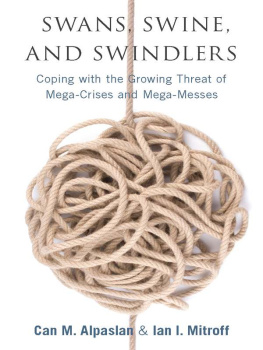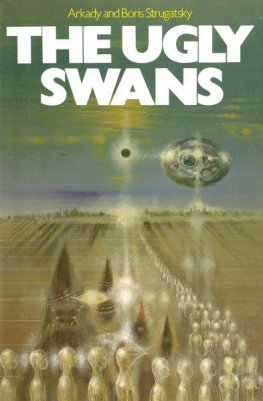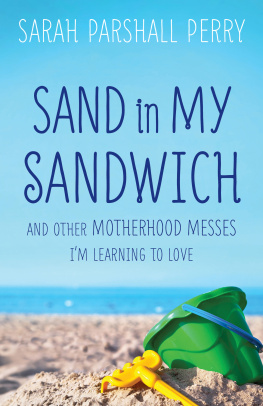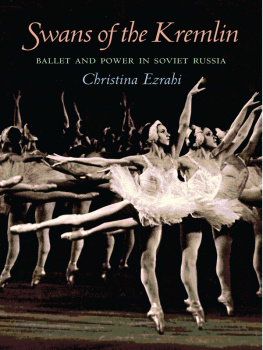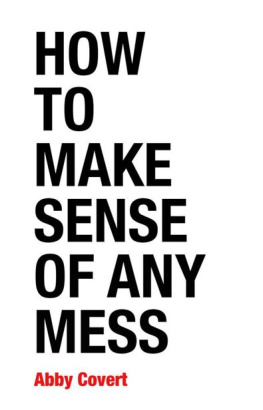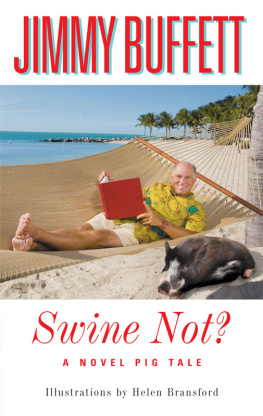SWANS, SWINE, AND SWINDLERS
HIGH RELIABILITY AND CRISIS MANAGEMENT
SERIES EDITORS Karlene H. Roberts and Ian I. Mitroff
SERIES TITLES
High Reliability Management: Operating on the Edge
By Emery Roe and Paul R. Schulman
2008
Dirty Rotten Strategies:
How We Trick Ourselves and Others into Solving the Wrong Problems Precisely
By Ian I. Mitroff and Abraham Silvers
2010
SWANS, SWINE,
AND SWINDLERS
Coping with the Growing Threat
of Mega-Crises and Mega-Messes
Can M. Alpaslan
and Ian I. Mitroff

Stanford University Press
Stanford, California
2011 by the Board of Trustees of the Leland Stanford Junior University.
All rights reserved.
No part of this book may be reproduced or transmitted in any form or by any means, electronic or mechanical, including photocopying and recording, or in any information storage or retrieval system without the prior written permission of Stanford University Press.
Special discounts for bulk quantities of Stanford Business Books are available to corporations, professional associations, and other organizations. For details and discount information, contact the special sales department of Stanford University Press.
Tel: (650) 736-1782, Fax: (650) 736-1784
Printed in the United States of America on acid-free, archival-quality paper
Library of Congress Cataloging-in-Publication Data
Alpaslan, Can M. (Can Murat), author.
Swans, swine, and swindlers : coping with the growing threat of mega-crises and mega-messes / Can M. Alpaslan and Ian I. Mitroff.
pages cm. (High reliability and crisis management)
Includes bibliographical references and index.
ISBN 978-0-8047-7137-5 (cloth : alk. paper)
1. Crisis management. I. Mitroff, Ian I., author. II. Title. III. Series: High reliability and crisis management.
HD 49. A 47 2011
658.477dc22
2011005045
Typeset by Bruce Lundquist in 10/15 Sabon
E-book ISBN: 978-0-8047-8108-4
This book is dedicated to the memory of Russell Ackoff:
friend, mentor, and teacher.
In the book of lifes questions, the answers are not in the back.
CHARLES SCHULTZ
If everything is a mess, why not analyze and manage it that way?
EMERY ROE
The common division of the world into subject and object, inner world and outer world, body and soul, is no longer adequate.
WERNER HEISENBERG
CONTENTS
PREFACE
Testifying to the Financial Crisis Inquiry Commission, the body established by Congress to determine the causes of the Wall Street debacle, Lloyd C. Blankfein, the chairman and chief executive of Goldman Sachs, drew most of the fire.
Mr. Blankfein parried repeated questions over his banks extraordinary profits and salaries. At one point, when he likened aspects of [the great financial crisis] to a hurricane and similar acts of God [that is, natural disasters], the commissions chairman, Phil Angelides, a Democrat and former California state treasurer, cut in to say, Acts of God, well exempt. These were acts of men and women.
SEWELL CHAN , New York Times, January 14, 2010
T HE POTENTIAL IMPACT OF CRISES caused or exacerbated by humans is increasing exponentially. As the quote above suggests, the current financial crisis was not an act of God; it was an act of men and women. So are all crises. And there are at least three major human causes of crises.
Swans refers to false assumptions and mistaken beliefs in particular, and the inability to manage assumptions and beliefs in general,
Swine refers to greed, hubris, or arrogance, and the inability to design and operate systems that can minimize those traits. If drilling the deepest oil and gas well ever in history reflects BP and Transoceans intensive planning and focus on effective operations, as the Transocean CEO had said, then causing and failing to contain one of the largest oil spills in history shows much more than negligence, foolishness, or a lack of crisis management capacity. It shows the greedy, arrogant, and even narcissistic side of these organizations. It also shows that these types of organizations are not designed and monitored effectively, sanctioned, or punished such that they are deterred from engaging in behaviors that put the rest of us and nature at risk.
Swindlers refers to unethical and corrupt behaviors, and of course, the inability to monitor, detect, and stop such behaviors. Bernie Madoffs Ponzi scheme, Enrons collapse, and Worldcoms bankruptcy are just a few examples. The types of crises caused by swindlers send out a trail of early warning signals long before they occur. But for various reasons, such as confused organizational priorities, and individuals and organizations inability to pick up signals or connect the dots, these crises are often not prevented before they happen.
Of course, these three types of causes are interrelated and not mutually exclusive. Downplaying the significance of black swan events may be due to arrogance, over-confidence bias, or situational factors such as a dysfunctional reward-incentive system, whereas intentionally failing to prepare for black swan events can be due to low or nonexistent ethical standards. Cutting back on safety without violating regulations may be due to greed, arrogance, habit, cost-cutting pressures, normalization of deviance, or a lack of understanding of the complexities of a system. Violating regulations intentionally because paying off fines is cheaper than adhering to regulations can be due to low ethical standards as well as ineffective regulations and intense competition. While, as noted, the potential impact of crises is increasing exponentially, our ability to prevent or respond to crises properly seems to increase only linearly at best. A proper response to a crisis requires at a minimum a more comprehensive set of critical thinking skills, a higher level of emotional intelligence, and a higher level of moral development. Our goal in this book is to provide a set of tools, concepts, frameworks, and perspectives that the reader can use to understand crises better and manage them more properly.
CENTRAL CONCEPTS : CRISES AND MESSES
Two critical conceptscrises and messesplay central roles throughout this book. As a result, both concepts are not only used constantly but continually refined and redefined as we proceed. Nonetheless, precisely because they are so central and critical, we need to give some preliminary definitions and understandings of both terms.
Russell Ackoff was the first to appropriate the expression mess to stand for a system of problems that are so interrelated that they cannot be separated in principle, in practice, or, most fundamental of all, in their basic existence:
[People] are not confronted with problems that are independent of each other, but with dynamic situations that consist of complex systems of changing problems that interact with each other.... I call such situations messes. Problems are abstractions extracted from messes by analysis.
Therefore, when a mess, which is a system of problems, is taken apart, [i.e., analyzed] it loses its essential properties and so does each of its parts. The behavior of a mess depends more on how the treatment of its parts interact than how they act independently of each other. A partial solution
In other words, none of the problems that are parts of a mess can be taken apart and analyzed independently of all the other problems that constitute the mess. In slightly different words, a mess is a
Next page
